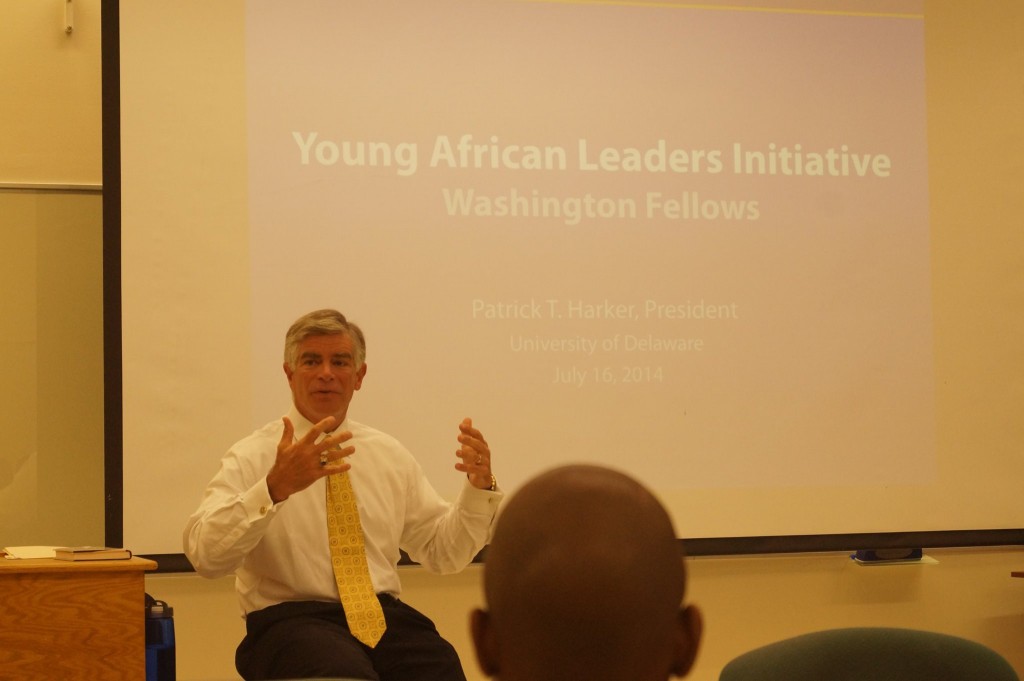The emerging of new businesses, like not-for-profit organizations and companies, is a not a new phenomena. Despite their increase, not all of these ventures are performing well. On 16 July, Dr. Patrick T. Harker, the President of the University of Delaware, shared his experiences with leadership in the business and civic sectors with the Washington fellows. During his leadership journey, he realized that “you’re a leader only if people are following you.” While many people have titles like CEO, president, and coordinator, not all of them are leaders. Harker stated, “You may have power of forcing people to follow you. They may pretend to follow, but they don’t really mean it.” We are leaders. Are our followers really meaning it?
President Harker instructed us to “lead from the middle.” What he referred to was the idea of building the team and not pretending to be too smart “You can’t know everything,” he told us. He then continued, saying, “so be humble, and let someone else take the lead for things you don’t know.” Being a leader is all about collaborating and complimenting each other. The power of teamwork can increase the sense of ownership and investment for staff and boost the performance of our social ventures.
“Make no decision before its time. But when it’s time, make it” was another piece of advice from the administrator. Every decision taken by a civic leader has direct impact on their ventures. As Dr. Harker put it, “Get the team behind you so that they can say, ‘It’s our decision.’ How often do you engage your team in decision-making? Some leaders believe the boss is always right and, if he/she’s wrong, refer to rule number one.” This is ineffective leadership.
“Always give the credit” and “always take the blame” were two more maxims President Harker offered us. A true leader is someone who praises and acknowledges the performance of others. Referring to the statement of Dr. Harker, namely “I can’t make all the decision for 4,000 people, why should I take all the credits?” I wonder how we as civic leaders feel about giving credit to our coworkers and staff members for the work they’ve done. It’s not all about how much you pay, but also how you treat your subordinates.
 According to Dr. Harker, it is important to “take the pain early.” He continued, “Be it a big or a small organization, things will happen that are out of your control. Some leaders always try to cover problems their organization is facing. Unfortunately, bad things will be discovered one day.” This statement told us that we aren’t perfect, and whenever we make mistakes, we should accept the truth and not pretend to be 100% right.
According to Dr. Harker, it is important to “take the pain early.” He continued, “Be it a big or a small organization, things will happen that are out of your control. Some leaders always try to cover problems their organization is facing. Unfortunately, bad things will be discovered one day.” This statement told us that we aren’t perfect, and whenever we make mistakes, we should accept the truth and not pretend to be 100% right.
Finally, UD’s president encouraged us to remember, “Leadership isn’t about today. It’s about creating a vision for tomorrow.” While many leaders try to be very specific and detail everything in a minute strategic plan, Harker believes in having “big picture and milestones.” He encouraged us to have big goals and work for them, even if sometimes it seems like we’re “making it up as we go along.”





